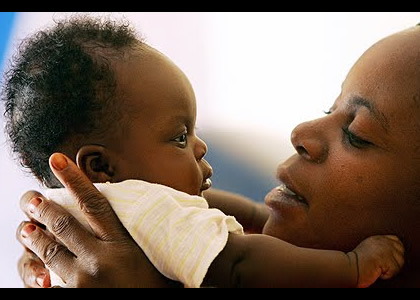533
Wednesday 12th November 2014 is marked as the World Pneumonia Day with a theme ‘Universal Access for Pneumonia Prevention and Care’.
In a press release shared with Health Reporters, the Pharmaceutical Society of Nigeria has join hands with all men and women of goodwill to affirm what we know and we commit to doing and encourage all to do as follows:
- Pneumonia is the #1 infectious killer of children under age 5 globally and #3 in Nigeria: Every year nearly 1 million children die of pneumonia worldwide, about 15 percent of total deaths for children under age 5, of which 2 percent are newborns.
- The decline in pneumonia deaths has been slower than other diseases. We must scale up our efforts if we are to meet the global challenge to end these preventable child deaths by the year 2030.
- Poor and rural communities are most affected:Pneumonia affects children and families everywhere but almost all deaths from pneumonia occur in poor or rural communities. Pneumonia is most prevalent in sub-Saharan Africa and South Asia, of which India, Nigeria, Pakistan, DRC and Ethiopia account for 50 % of total deaths.
- Close the access gap by reaching all children with existing interventions:Evidence shows children are dying from pneumonia because existing effective interventions outlined in the Global Action Plan for the Prevention and Control of Pneumonia and Diarrhoea (GAPPD) are not readily available for all. Proper nutrition, vaccinations, hand-washing with soap, low-emission cookstoves and exclusive breastfeeding for newborns, can help protect children and prevent pneumonia.
- For children and newborns who fall sick with pneumonia, early access to effective, appropriate, affordable antibiotics (such as Dispersible Amoxicilline which is recommended as First-Line Treatment by WHO and UNICEF) and oxygen therapy can be lifesaving.
- Better access to integrated quality care can drastically reduce child mortality:Prompt and correct treatment of pneumonia and diarrhoea, which account for 25 percent of all child deaths globally, can drastically reduce child mortality.
- Access to better equipment for the detection of pneumonia aids better quality care: Many children die because healthcare providers do not have the equipment needed to easily detect signs of pneumonia. The world must continue to invest in the development and consistent use of improved methods for the detection of mild and severe pneumonia infection.
- Momentum of MDG4 must be sustained beyond 2015:The world has made substantial achievements in child survival, the number of under age 5 deaths worldwide has declined by nearly 50 percent (12.7 million deaths in 1990 to 6.3 million in 2013). Yet, Millennium Development Goal 4, which calls for reducing the under age 5 mortality rate by two thirds between 1990 and 2015, is still out of reach for many countries including Nigeria.
- Strengthened commitment to ending preventable child deaths in the Post-2015 Agenda: Ending preventable deaths of newborns and children under age 5 by 2030 and achieving Universal Health Coverage are part of the current Sustainable Development Goals. Universal Health Coverage is key to increasing access to prevention and quality care services for pneumonia. Coverage of and access to pneumonia treatment in children could also be an effective indicator to track progress on health in the Post-2015 Agenda. However there is an ongoing need for better quality data on health indicators.
In recognition of the importance of this day, we the Pharmaceutical Society of Nigeria recommend the following;
- Governments (Federal & State) to prioritize interventions for the prevention and treatment of pneumonia (such as Dispersible Amoxicillin) to reduce overall child morbidity and mortality due to pneumonia, especially in high burden areas where known gaps in access exist.
- Non-governmental organizations to recognize the importance of pneumonia in contributing to child morbidity and mortality, as well as to prioritize and provide support for interventions accordingly.
- Donors to commit funds to the prevention and treatment of pneumonia, for the development of new tools and effective implementation of proven solutions.
- Academia to continue investing in sociocultural research on knowledge, attitudes, cultural practices and health seeking behaviors, the most equitable and cost-effective delivery strategies, as well as new solutions for prevention, diagnosis and treatment of pneumonia.
- Public to encourage government to increase investments in pneumonia interventions for populations most affected.




